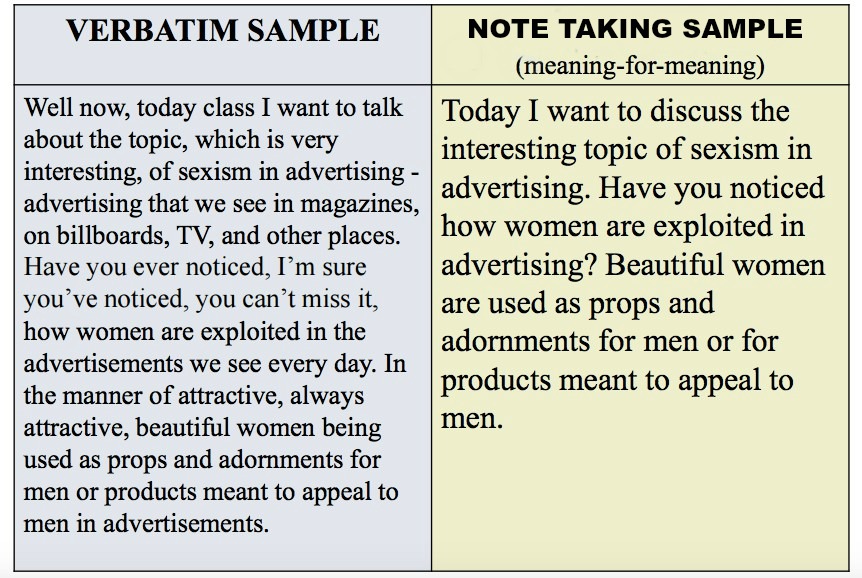How Deaf Students Can Apply For Funding
The number of deaf students attending universities and colleges in the UK has dramatically increased over the past two decades, with student funding being key to enabling this progress.
Deaf students can apply for the Disabled Students Allowance (DSA) funding through the DSA-QAG website. The allowance does not need to be paid back. However, most services need to be booked months in advance, so it’s best to apply for DSA funding as early as possible, even before your preferred study course has been approved.
The Disabled Students Allowance is capped, so you need to stay within budget. Unfortunately, this means that you might not get the specific support you want or need to excel in your studies. We’ll explore this in more depth throughout this article.
Deaf and hard of hearing communication support
During lectures, students can spend much of their time and mental effort trying to take notes. This is a very difficult skill to master for many students, especially if the material is complex, like Organic Chemistry.
It’s a demanding task, trying to simultaneously listen to the lecturer, read what’s on the screen/slides, attempt to understand it and write concise and useful notes.
A deaf or hard of hearing learner might not necessarily know whether or not they’re getting the entire message, which is why many hard of hearing learners need access to appropriate resources for deaf students.
The Disabled Students Allowance (DSA) makes provision for those who need communication support, helping deaf students gain equal access to education and enhance their learning experience.
There is no one form of communication that is sufficient for all deaf learners, however, to help hard of hearing learners construct meaningful context, two of the most utilised tools used at universities are electronic note taking and real-time speech-to-text.
The difference between electronic note taking and speech-to-text for hard of hearing students
| Electronic note taking (ENT) | Speech-to-text (verbatim) |
| Real-time summary of what is said displayed on a separate screen or lap-top so the deaf learner can follow along. | Verbatim (word-for-word) text appears with only a one second time delay. |
| ENTs use a laptop computer. | Speech-to-Text Reporters (STTRs) use shorthand machines. |
| Summarised text is streamed from the ENT’s laptop to the student’s laptop so they can read the subtitles in real-time. | STTRs stream everything being said in class word-for-word in real-time to the student’s computer. |
| 90 words per minute (150 wpm condensed) | Up to 360 words per minute |
| Comprehensive summarised notes of lectures are provided. | Transcripts are available immediately after lectures have finished. |
Take note: The above refers to 121 Captions services specifically and does not represent other companies’ level of support, experience and quality.
Many students prefer live captioning (verbatim speech to text). It is more expensive which is why the cost was originally treated as an ‘exception’ and assessed/awarded on a case by case basis. However, as of 2016, QAG decided to merge verbatim and notetaking into the same DSA Band 3 rate, meaning unless you or your university pays for real-time speech-to-text, you can’t book the verbatim service.
The application process for DSAs
You are eligible to receive student funding if you meet the definition of disability under the Equality Act 2010 and are on a full-time course that lasts at least one year or a part-time course that lasts at least one year and does not take more than twice as long to complete than the equivalent full-time course.
The application process can take up to 3 months, which is why you need to apply as soon as possible.
7 Steps to applying for DSA funding
1. Complete and return the DSA application form to the funding body.
2. Your application will be assessed, and they might request additional information.
3. After that, you’ll receive a letter stating whether you are eligible for funding.
4. Once approved, the funding body will send you a letter arranging a Needs Assessment appointment to identify what support you require. You can find a DSA-QAG certified assessment centre
5. The funding body will review your needs assessment report and recommendations.
6. Based on the requirements and approved funding, you have the responsibility of ordering approved equipment and arrange for non-medical help.
7. The suppliers you’ve chosen to use must then invoice the funding body directly, and you can submit receipts for reimbursements of costs to the DSA.
Allowances for the 2017 academic year
The DSA has different allowance types, each with a capped amount. Postgraduate students can claim an annual allowance of up to £10,362.
| Allowance type | Full time student | Part time student |
| Special equipment allowance:
Radio aids, specialised computers & software, printers & scanner. |
Up to £5,212 for the whole course. | Up to £5,212 for the whole course. |
| Non-medical helper’s allowance:
Interpreters, electronic note takers and speech-to-text reporters. |
Up to £20,725 a year. | Up to £15,453 a year. |
| General and other expenditure allowance:
Photocopying & additional study-related travel costs. |
Up to £1,741 per year. | Up to £1,305 per year. |
What’s not covered by DSA?
As of September 2016, the following will not be available via DSAs:
- Manual note takers without specialist training.
- Transcription services, including speech-to-text.
- Proofreaders.
- Alert systems for accommodation owned or managed by universities.
121 Captions resources for deaf students
We provide disabled students with the following services:
- Specialist electronic notetaking, onsite and remotely.
- Specialist electronic notetaking for visually impaired students, onsite and remotely.
- Verbatim speech-to-text, onsite and remotely. (Not covered by DSA, speak to your university for funding).
- Transcription of audio recordings.
- Subtitling videos for YouTube and Vimeo.
- Proofreaders.
Both Specialist Electronic Notetaking and Speech-to-Text Reporting are exceptional resources for deaf students, services providing you with the access you need. Each service fits different users’ needs and circumstances and would thus determine the type of service you book.
We hope that a time will come when all funding and educational organisations will work with us in understanding the needs of deaf and hard of hearing students and what true access really means.
You can find more information about Disabled Students’ Allowances at Student Finance NI and Student Finance Gov UK.
For any advice or support in furthering your education contact us.






Leave a Reply
Want to join the discussion?Feel free to contribute!